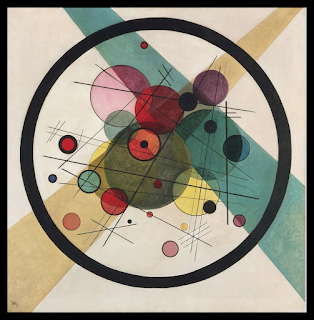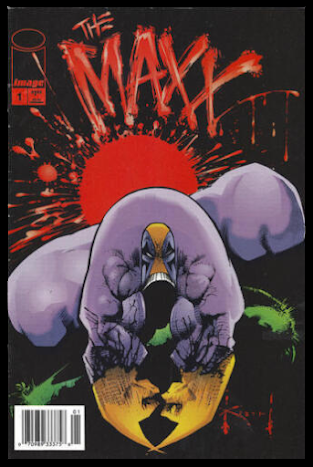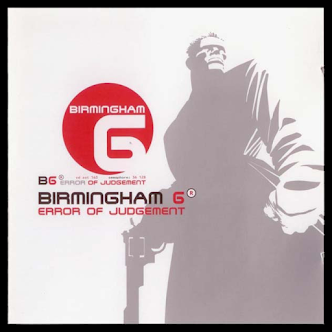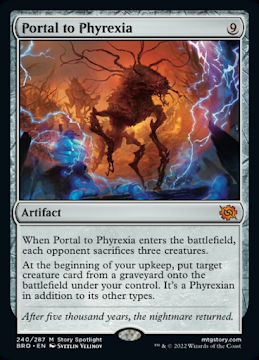Psst. I'm still over on Substack, but I did say this would be my receptacle for whatever dragged-out, uncritical pop culture writeups I might feel irresistibly compelled to throw together. I'm afraid the time has come to use it in that capacity.
Saturday, July 29, 2023
In Review: The X-Men's Krakoa Era
Psst. I'm still over on Substack, but I did say this would be my receptacle for whatever dragged-out, uncritical pop culture writeups I might feel irresistibly compelled to throw together. I'm afraid the time has come to use it in that capacity.
Thursday, June 8, 2023
Locking the door but leaving the lights on
So I've got a Substack now.
I've already gone over the reasons for wanting to move on. Blogger is a zombie platform. Substack hosts a livelier scene, and its architecture is much more interlinked than Blogger's. Maybe—maybe—I can get involved in the "community" and make the acquaintance of people I vibe with. I'm probably kidding myself (writers are an off-putting breed, let's be honest), but one can hope.
And also: you can subscribe and get updates right in your inbox without having to check back every couple of weeks! HOW EXCITING! I understand Blogger used to be able to do this, but no longer. (Like I said: zombie platform.)
This blog is looking like a hoarder's house to me at this point, and I thought it might be fun to try something a little different—and with a more defined purpose. When I started this thing, the idea was to just treat it as a repository for whatever thoughts I cared to elaborate on, and lately I'm feeling like I might do better by limiting myself to a narrower set of themes. Restrictions promote creativity, after all.
Maybe I'll periodically return here to post fluffy stuff about video games, comics, etc. when I feel compelled to write it. (I really had a lot of fun scribbling about Shade, The Maxx, etc. over the last few months.) Heck, maybe I'll get tired of Substack and wander back by the end of the summer. Who knows?
So, again: Beyond Easy probably won't be updated for a while. Go here instead.
Hmm. The space could use a bit of gussying up. I'll get to it sometime.
Saturday, June 3, 2023
Kontemplating Komix: I Feel Sick (1999–2000)
 |
| I will not be unconvinced that the title is an End of Evangelion reference. |
When we were talking about The Good Old Days some years back, my hometown friend Dave said: "Johnny the Homicidal Maniac was our Catcher in the Rye." The observation was too on-point not to get permanently stuck in my memory. Dave certainly has his moments.
Thursday, April 13, 2023
Kontemplating Komix: Empowered (2007– )
Oh jeez. We're doing Empowered? Okay. Let's talk about Empowered.
Empowered is...
No, damn it. No. Let's not start like this.
Sunday, April 9, 2023
The Mall & The Sprawl & The Automobile
Monday, March 27, 2023
Kontemplating Komix: The Maxx (1993–98)
Monday, March 13, 2023
The mummery of "You Cannot Walk Here"
The music I want to hear changes with the season, and during the fall and winter months I crave industrial. Since the clocks were set an hour back in November, I've been listening to a lot of Wumpscut in my little alcove in the office. I've enjoyed listening to KMFDM's Nihil all the way through at least once a week. Give me Skinny Puppy, give me SPK and Frontline Assembly and Leæther Strip.
Sometime in early February I started on a Birmingham 6 binge. Maybe we could say they spent their all-too-short career playing second fiddle to KMFDM, but I love them all the same. I kept their 1995 album Assassinate (a mixed-up stateside version of 1994's Mindhallucination) in heavy rotation throughout high school, but it wasn't until the days of file sharing that I came upon their epic sophomore effort Error of Judgement (featuring Front 242's Jean-Luc De Meyer).
A week or two I caught myself singing along to to Error of Judgement's fifth track, "You Cannot Walk Here." And why not? It's a jam. But listening the lyrics coming out of one's own mouth can be jarring, perhaps to the extent that some neurotic mutant might wish to issue an apologia for the track and his enjoyment of it.
Wednesday, March 8, 2023
Decisions, Update
I appreciated people weighing in on the Substack question, although I still haven't come to a decision.
Blogger is a zombie platform. Few people use it anymore, and Google retires existing features more often than it implements new ones. Substack is fresh, and it has a scene. Maybe I'm kidding myself, but it seems like Substack would be an opportunity to join in and contribute to The Conversation instead of talking to myself here.
Two things give me pause:
(1) I'm a bit of a packrat. I don't like the idea of tossing out over a decade's worth of Content. Although—maybe this would be a good opportunity to sift through it all, pick out anything that's truly worth preserving, and dispose of the dross.
(2) This is a Blog. My intention was never to Build a Personal Brand or focus exclusively on Topic X or Theme Y, but to just spout off whatever was on my mind during a given day or week or month. I feel like if I switched to writing a Substack newsletter, I'd have to make it about something. I might even end up pressuring myself to go topical, which I've never, ever been good at (except maybe when I was making comics about video games years and years ago). Then again, restricting myself to subjects situated within certain parameters could improve my output. Who knows?
I'm not ruling anything out yet, but I should probably make myself choose whether to fish or cut bait sooner than later.
Sunday, March 5, 2023
Kontemplating Komix: Shade, The Changing Man (1990–96)
This has been something I've meant to do for a long time. The images I collected for a Shade, The Changing Man writeup are in a folder that's almost three years old. There just never seemed to be a good time to go ahead and make it happen. Lately I've gotten it into my head that there are a couple of other underappreciated comic books that I'd like to write about, so I figure I might as well do a little series, starting with Shade.
Shade, The Changing Man is the seminal comic serial of author Peter Milligan, who might be better known for his work on mainstream superhero titles like Detective Comics,* X-Force, X-Men, and Justice League Dark. It launched in 1990 and concluded in 1996 after seventy issues.
*As a matter of fact, it was Milligan who came up with the idea of the bat-demon Barbatos, and he was a co-creator of Azrael, the guy who briefly replaced Bruce Wayne as Batman after the Knightfall storyline.
I can't speak to how popular Shade was in its own time, but it's telling that as recently as 2014, the trade paperback collections only went up to issue #25. (Having been introduced to the series through an impulse purchase of the first volume at a bookstore, I can't tell you how crazy this made me.) I can't remember what year it was that I checked again, but it couldn't have been more than a half a decade ago that I browsed the DC Universe digital catalogue and found that it excluded issues #51–70.
Compared to 1990s Vertigo hits like Sandman, Preacher, and Doom Patrol, Shade, The Changing Man has been mostly forgotten. I won't venture to guess why that might be—its pervasive weirdness and the unremitting flakiness of its protagonist could have something to do with it—but whatever the reason, Shade's status as an eclipsed also-ran is a damned shame. It's easily as good as any of its Vertigo contemporaries, if not better.
Sunday, February 5, 2023
Saturday, February 4, 2023
On AI Art: Remember, We Asked For This
 |
| Pianola advertisement (1909) |
Friday, January 27, 2023
Punk, Conservatism, & the Mandate of Heaven
A couple of weeks ago, a column in the Economist ("How rappers are strengthening Donald Trump’s movement") sent a shiver down my spine.
Mr Townsend ["Topher"], 31, served as a cryptological analyst in the Air Force before moving to Philadelphia with his wife, a teacher. He loves the 'Sip, as he calls his state; you could not pay him to move to "any of those Democrat-controlled cities." A fireplug of a man who raps—and eats lunch—in a MAGA-red knit cap, he can glower with the surliest of rappers. But his music can also be buoyant and empathetic and, in person, so is he. His influences range beyond Mr Trump to Booker T. Washington, Malcolm X and Eminem.
Mr Townsend grew up in the hamlet of Kilmichael, Mississippi. His mother taught him to be the man of the house by ten years old, he says, but she drank, and his father, married to another woman, was not much in his life. When he was 12 or 13 one of his mother's boyfriends hit her in the face with a two-by-four, and as she bled it took an hour for the police to respond. "I learned early on no one was coming to save me," he says. "And I think that's what fuels my ideology today. No government, nobody."
Mr Townsend's contempt for authority points to a reversal of cultural polarity under way in America. The left once drew energy from scorning authority and bourgeois convention. But as it becomes America's enforcer of social norms, it increasingly treats the arts as a tool for instruction. As a result it is surrendering what puts the arts in society’s vanguard, the capacity to question and shock. What more transgressive act could an artist perform than to don a MAGA cap, as Kanye West did?
The boldfaced sentence encapsulates an idea that's been a nagging source of angst for me over the last half decade, and reminds me of something a former acquaintance of mine from high school once said.
The guy's name was Paul. We were friends insofar as we usually ended up at the same cafeteria table if we shared a lunch period, and we associated with the clique of punker kids who congregated by their leaders' lockers during the fifteen minutes between the general arrival of the students and the first bell. I never saw him outside of school.After everyone in the country in Facebook and friended their old acquaintances around 2006–8, I got a window into where Paul's life was headed. Mostly I remember him making a documentary about the frontman of a punk-/goth-rock act; it pricked my attention because I was working on The Zeroes at the time. He was also doubling and tripling down on his libertarianism. Before I got off Facebook around 2015–16, Paul had gone full-on Proud Boy. I don't know what he's been up to since then, and I'm sometimes tempted to do some digging to find out. I think it's safe to guess he was within the city limits of Washington, DC on January 6, 2021.
I forget when exactly it was—probably sometime between 2010 and 2013—that I went on Facebook and read an opinion of Paul's which I still remember because it seemed so insane. However he worded it, the gist was: "the new punk is conservativism."
Friday, January 13, 2023
Magic: The Gathering: The Worldbuilding: The Writeup (9 of 8)
POSTSCRIPT: There were like five additional Magic: The Gathering posts after this one, which more or less covered all the sets from 2011 to early 2023. I erased them because they were embarrassing. I don't feel too mortified by the earlier writeups, since they follow the game's humble origins, growing pains, and maturation—but the later ones were a protracted wank over an IP that earns a billion dollars annually, written in the fog of seasonal affective disorder and probably under the influence of meds that weren't working out. I'm keeping this one up and leaving it at that.
Friday, January 6, 2023
Twelve Rounds with Kant (part fourteen)
 |
| Wassily Kandinsky, Circles in a Circle (1923) beautiful. |
I've ran out of steam. Between the business of living, the time I'm allotting to other sorts of writing (some of it is more pop culture gibberish you can look forward to reading on here; some of it is fiction which may or may not ever see the light of day), and Kant fatigue, I don't have energy enough to grapple with the Critique of the Power of Judgement with much vigor. I think this is going to be the last Kantpost for a while.
I'll do at least one more later; for all its faults and glitches, the third critique is an embarrassment of riches. It's the kind of book you could write at least two books about.
Anyway, let's talk about...
• BEAUTY
I am out of my depth here.
Here is the Stanford Encyclopedia of Philosophy's list of interpretive issues with the Critique of Aesthetic Judgement. Have a look.
That's a professional's take, and I won't pretend I'm on that level. Stress-testing Kant's analysis of taste and beauty on its own terms is more appropriate to a graduate student writing a dissertation, not a dilettante's blog post. And I can't in good faith attack Kant's theory of beauty when I don't have a comprehensive alternative to recommend in its place. I'm agnostic on the subject.
I respect anyone with the stones and the self-confidence to attempt a systematic definition of beauty. If the what is art? conversation typically leads to a quagmire, what is beauty? ends up in some spatially impossible MC Escher painting. We're all of us convinced we understand what beauty means, but struggle to articulate it in objective terms that stand up to scrutiny. In this we're like Supreme Court Justice Potter Stewart explaining his legal criterion for obscenity: I know it when I see it.







